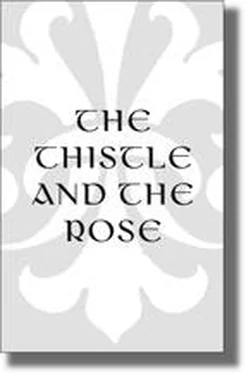Jean Plaidy - To Hold the Crown - The Story of King Henry VII and Elizabeth of York
Здесь есть возможность читать онлайн «Jean Plaidy - To Hold the Crown - The Story of King Henry VII and Elizabeth of York» весь текст электронной книги совершенно бесплатно (целиком полную версию без сокращений). В некоторых случаях можно слушать аудио, скачать через торрент в формате fb2 и присутствует краткое содержание. Жанр: Старинная литература, на русском языке. Описание произведения, (предисловие) а так же отзывы посетителей доступны на портале библиотеки ЛибКат.
- Название:To Hold the Crown: The Story of King Henry VII and Elizabeth of York
- Автор:
- Жанр:
- Год:неизвестен
- ISBN:нет данных
- Рейтинг книги:5 / 5. Голосов: 1
-
Избранное:Добавить в избранное
- Отзывы:
-
Ваша оценка:
- 100
- 1
- 2
- 3
- 4
- 5
To Hold the Crown: The Story of King Henry VII and Elizabeth of York: краткое содержание, описание и аннотация
Предлагаем к чтению аннотацию, описание, краткое содержание или предисловие (зависит от того, что написал сам автор книги «To Hold the Crown: The Story of King Henry VII and Elizabeth of York»). Если вы не нашли необходимую информацию о книге — напишите в комментариях, мы постараемся отыскать её.
To Hold the Crown: The Story of King Henry VII and Elizabeth of York — читать онлайн бесплатно полную книгу (весь текст) целиком
Ниже представлен текст книги, разбитый по страницам. Система сохранения места последней прочитанной страницы, позволяет с удобством читать онлайн бесплатно книгу «To Hold the Crown: The Story of King Henry VII and Elizabeth of York», без необходимости каждый раз заново искать на чём Вы остановились. Поставьте закладку, и сможете в любой момент перейти на страницу, на которой закончили чтение.
Интервал:
Закладка:
Although Suffolk returned to Court and was present at certain ceremonies, the King’s treatment of him continued to rankle. Henry believed that the young man had had a sharp lesson and would think twice before following in his brother’s footsteps, which he must see had led to his early death and the loss of prestige and property. His claim to the throne—flimsy though it was—caused the King to watch him with some concern, but it seemed that Suffolk had realized that his best hope of living comfortably was to be a loyal subject; he was with the army which had marched to Blackheath and dispersed the rebellious Cornishmen. Henry was pleased; perhaps he had nothing to fear from the young man; but of course he would remain watchful.
Then an unfortuante incident occurred. Suffolk had been involved in a quarrel and in the heat of passion had drawn his sword and run his adversary through the heart.
This was murder and Henry was not going to allow crimes of that nature to go unpunished.
Suffolk was enraged. It had been a fair fight, he insisted. Moreover he was royal; he did not expect to be treated as an ordinary person.
“The King has robbed me of much of my estate,” he said, “and in doing so forgets I am of the royal House of York. Would he indict me in the King’s Bench like some ordinary felon?”
“Murder is a felony,” was the King’s answer to that, “and those who commit it cannot be excused because of their royal blood.”
“Henry does not like those of us of the House of York who might be said to have more claim to the throne than an upstart Welshman,” was Suffolk’s impetuous retort.
His friends warned him of talking too freely but Suffolk was recalling the loss of the large portion of his estates and he was feeling reckless.
It was inevitable that some of his words should reach the King’s ear. A dangerous man, thought Henry. One who should be guarded against not so much because of his temper but because of his connection with the House of York.
Here was the old bogy rising once more. Lambert Simnel . . . and away in the distance the shadowy figures of two small boys in the Tower.
He brooded over Suffolk; he asked certain questions about his movements.
Suffolk had his friends, and they advised him to get away for a while until the affair of the killing blew over and as Suffolk had no intention of standing trial, in early August when the weather was calm he crossed the Channel without fuss, determined the King should not be aware of his departure until he was well away.

On arriving in France his first call was at the Castle of Guisnes near Calais. He knew he would receive a warm welcome there for the custodian of the castle was his old friend Sir James Tyrrell.
He was right. Tyrrell was in the courtyard as soon as he heard of his friend’s arrival. With him was his son, Thomas, of whom he was clearly proud and understandably so. Thomas was a handsome young man and it was obvious that there was a happy relationship between him and his father.
Tyrrell called to his horsekeeper, John Dighton, to give his personal attention to their guest’s stabling and Dighton, red-faced, big and broad and clearly capable, immediately set about doing his master’s bidding.
Sir James then took the Earl into the castle and sent his son to give orders that nothing should be spared in providing the utmost comfort for their guest.
Then he settled down to hear an account of the Earl’s abrupt departure. When he had explained, Suffolk reviled the King and brought up the old grievance of the King’s taking from him the major part of his inheritance, and then giving him back a portion for which he had to pay.
“Oh the King is most gracious,” said Suffolk sarcastically. “He has given me a period of time to pay him for my own estates. Did you ever hear of such conduct, James? And that the old miser should dare to behave so to a member of the House of York, angers me beyond description.”
“His treatment of you is because you are of the House of York,” said Tyrrell. “It was a sad day for us when the Tudor came and killed good King Richard.”
“I know you served him well. Rest assured that this King of ours sleeps uneasily in his bed. He is constantly on the lookout for someone to thrust a dagger into his heart or stretch out rightful hands to take the crown. You, my friend, were always loyal to our House of York.”
“King Richard’s reign was too short, alas. He was our rightful King.”
“I often wonder how much truth there was in that story of Edward’s precontract to Eleanor Butler,” went on Suffolk.
“There is one mystery which will never be solved.”
“And there is another. Those two little boys . . . Kings both of them if the story be true that the elder died before the younger. King Edward the Fifth and King Richard the Fourth. They were pleasant boys. I saw them now and then when I was young. ‘Tis a strange story. I wonder the King does not sift the matter, for if one of those little boys still lives he is indeed the true King. Henry cannot pronounce them bastards for if they are, so is his Queen—and how could the King of England marry a bastard!”
“’Tis a long-ago mystery,” said Tyrrell, staring straight ahead. “Too far back in time to be settled now.”
“But one which must haunt the King . . . unless he knows the answer.”
“It may be that he does know the answer.”
“You think he may?”
Tyrrell was silent then he said, almost as though speaking to himself, “Oh it is long ago. But you, my lord, what plans have you?”
“To rest here for a while and see how the land lies.”
“My son and I will make you welcome here for as long as you wish to stay.”
“I must not stay long. By doing so I should compromise you with the King.”
“He knows I have no plans to rise against him.”
“Then you should not be too friendly with those who have a reason for doing so.”
Tyrrell looked at Suffolk with something like wonderment.
“You, my lord . . . how?”
“Why should I not discover? It may well be that I have friends on the Continent. As for you, James, you might do well not to connect yourself too openly with me . . . until such time as it will be safe to do so.”
Tyrrell’s face hardened: “I do not fear the King,” he said.
“No, you are well away. He has been a good friend to you . . . in a manner of speaking. After all you were a strong supporter of King Richard.”
“Oh yes . . . I must say that I was forgiven my allegiance to the House of York. He made me Sheriff of Glamorgan and Morgannock and gave me the Constableship of Cardiff Castle for life with a salary of one hundred pounds a year.”
“Generous treatment for a miser. There was something behind it all. There must have been.”
“Yes,” said Tyrrell, “there must have been.”
“The Tudor always has his reasons and he is not accustomed to giving something for nothing. He must have had a great opinion of you, James. He must have thought very highly of your services. And now you have Guisnes. Almost as though he wanted you out of the country. It shows he trusts you.”
“Yes, I think he trusts me.”
“Then you should keep it that way . . . until such a moment as you decide it is no longer necessary. One must be wily when dealing with the Tudor.”
“You are right there. Have a care, my lord.”
“You may trust me to do that.”
Shortly afterward Suffolk left Guisnes. Tyrrell was relieved to see him go.
He had good reason to know how ruthless Henry Tudor could be.

Интервал:
Закладка:
Похожие книги на «To Hold the Crown: The Story of King Henry VII and Elizabeth of York»
Представляем Вашему вниманию похожие книги на «To Hold the Crown: The Story of King Henry VII and Elizabeth of York» списком для выбора. Мы отобрали схожую по названию и смыслу литературу в надежде предоставить читателям больше вариантов отыскать новые, интересные, ещё непрочитанные произведения.
Обсуждение, отзывы о книге «To Hold the Crown: The Story of King Henry VII and Elizabeth of York» и просто собственные мнения читателей. Оставьте ваши комментарии, напишите, что Вы думаете о произведении, его смысле или главных героях. Укажите что конкретно понравилось, а что нет, и почему Вы так считаете.












